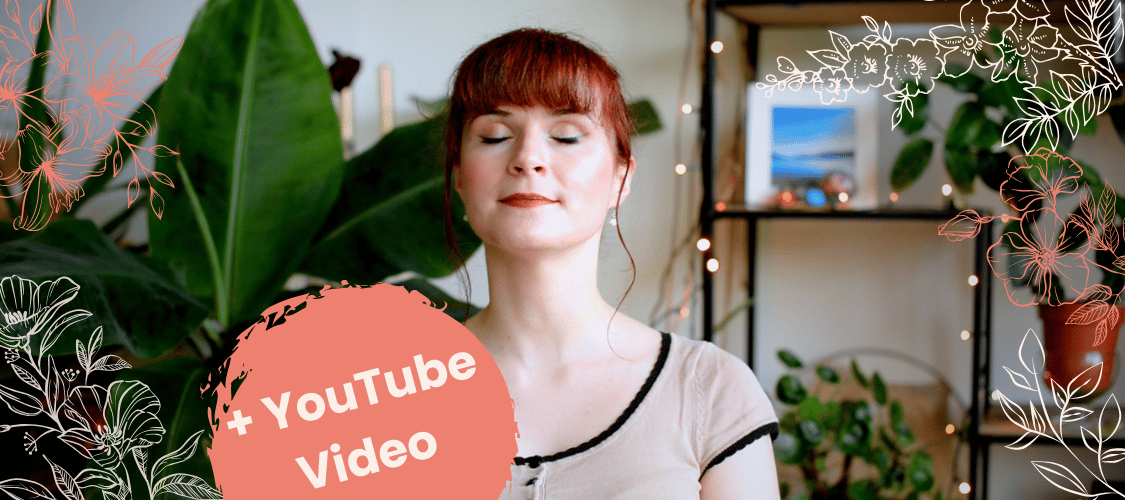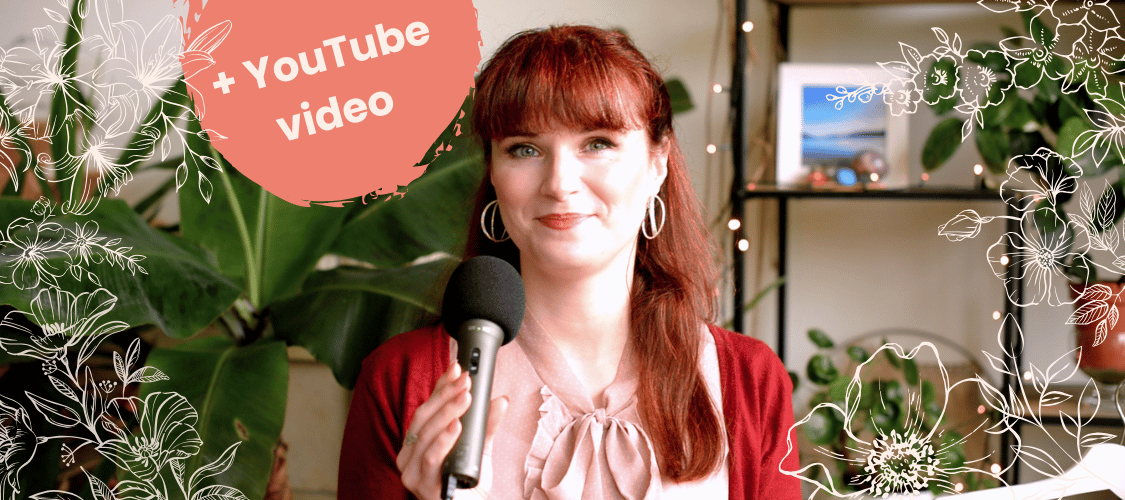At times, we find ourselves caught in a spiral of negativity, where all we envisage are negative scenarios unfolding. Trusting your intuition and believing in a positive outcome becomes really challenging with this mindset. I aim to demonstrate how you can combat this day by day, cultivate a fresh mindset and learn how to trust yourself again.
You Are Not Your Thoughts
We often identify ourselves with our thoughts, assuming that what’s on our mind reflects who we are. Some people even believe that we are genetically predisposed to be optimists or pessimists and that there’s nothing we can do about it. I used to think that way in the past, and I was proven wrong so now I believe the opposite.
Thoughts and emotions come and go. They are very temporary in nature and it’s counter-productive to shape our lives based on something that lasts only momentarily. However, if we repeatedly have the same thoughts and give them attention, our brain takes them as truth and even reminds us of them during the day, thinking they’re important to us.
“Remember this intrusive thought you keep focusing on? Here it is again, because it seems like something important to you. So, I, your loving brain, am here to serve you and remind you about it. You’re welcome.”
A thought repeated many times solidifies in your brain and creates a belief. Moreover, thoughts create emotions, and you can see the proof of this every time you start dwelling on something negative that might happen, which then turns into real emotions of fear and worrying about the outcome, even if the probability is low.

Signs You Don’t Trust Yourself
We all have relationships with ourselves. It’s based on the same dynamics as any other relationships you have in your life with other people. You can be friendly or unfriendly towards yourself, you can trust or distrust yourself, you can be understanding and console yourself like a good friend would, or you can downplay your experience. You can believe in yourself or doubt yourself.
Are you your best friend, keen cheerleader, and supporter? How do you react to your own mistakes? How do you talk to yourself? It all matters and impacts your relationship with the higher self.
Here are signs that you might not trust yourself, leading to a strained relationship with your higher self:
- You have low self-esteem and struggle to recognise your inherent value.
- You blame yourself for a painful breakup, believing you were the problem.
- You struggle with self-acceptance and react negatively to everyday mistakes.
- You experience high anxiety or have an anxious attachment style.
- You tend to focus on things you can’t master and believe you lack skills in areas where you excel.
- You feel depressed or are in a depressive state.
- You speak to yourself in a negative or shaming way.
- You dwell on past experiences and find it hard to live in the present.
- You often judge yourself harshly.
- You are codependent and seek validation from external sources to define your worth.
- You believe you make poor decisions or struggle to make decisions due to fear of the outcomes.

How to Trust Yourself Again
Self-development and increasing your self-trust is entirely an inside job and depends solely on you. No amount of doubt from external sources can discourage you once you decide that this is no longer who you are.
The following tips require consistent, everyday effort from you. Even if doubts arise, keep moving forward without giving them too much attention, as discussed in the section about your thoughts. Progress little by little, day by day, knowing that you will be alright. Spending just 30 minutes a day adds up to over 10,000 hours a year! Small steps and self-discipline are more important than any quick fixes or tactics. This is the power of consistency.
Here’s what you can do to start trusting yourself again:
1. Positive Affirmations = Self-Love
The inside job starts by overwriting the programming you’ve carried most of your life and loving yourself unconditionally. Everything we repeatedly tell our subconscious mind becomes its truth, and it will seek confirmation in the environment to give you what you want. For instance, if you believe you’re bad at remembering names, your brain won’t even register when people introduce themselves. Regularly repeat positive affirmations about yourself and the person you want to become. Listen to sleep meditations to soak your brain in these affirmations to speed things up and let it work for you while you’re getting your beauty sleep. Find them on YouTube or buy personalised affirmations that target your specific situation.
2. Learn to Discern Between Intuition and Anxiety
Intuition is a power tool that is always on your side. Your subconscious mind, or higher self, whatever you want to call it, is here to assist you because it knows much more than your conscious mind. However, if you have anxiety of any kind, it can mimic intuition and sabotage you. Learn to discern when one and when the other is speaking to you through consistent meditation and understanding your emotions, healing past traumas and reprogramming your brain with positive things about yourself. Intuition feels more like a calm hunch, while anxiety is more tangible in your body. And the more you trust your intuition and act on it, the stronger and more accurate it becomes. It’s like a muscle!
3. Meditate
Practising meditation everyday is key to emotional regulation. I rely on meditation at this point and can’t go without it. While meditating, you’ll get to know yourself. Who are you? What are your desires? What kind of thoughts come to you while your mind is idle? All these things are an important insight and require time to understand yourself. Meditation isn’t about stopping thoughts but observing them and letting go. Visit my channel to start meditating today and make it a daily habit.
4. Write a New Story
In your old story, you had certain traits that made you question yourself, and it’s time to abandon it. You’re just one decision away from being a different person. When you reflect enough to understand who you are and what you want, take some time to also reflect on who you want to be and who you want to show up as. How does this person behave? What does she think? Write down all these things as a part of your new story.
You can perform this ritual: write out the old story, including all the things that limited you or how you showed up in relationships, and then burn it (ensure safety while doing so!) or discard it. From that moment onward, it no longer exists. Then, write a completely new story. If the old story resurfaces once in a while, tell yourself, ‘it’s just the old story; we can ignore it,’ and move forward, making decisions and acting in accordance with the new story you have created.

5. Set Boundaries With Yourself
Maintaining boundaries with others is an act of self-love, protecting yourself from unnecessary emotional distress. Setting boundaries with yourself follows the same principle and is your path to self-discipline. Establishing boundaries and practising self-discipline are crucial components of self-love that people often overlook—those who indulge in binge-watching Netflix with sheet masks on their faces. Start by creating personal rules that promote positive habits, such as: not eating after 7pm, working out three times a week in the evening, or limiting dining out to once a week—whatever helps you live your best life. With clear rules in place, you won’t have to deliberate over whether to indulge in evening sweets; you’ll simply follow your established guidelines. It’s that simple.
6. Keep the Promises You Make to Yourself
Imagine if your friend told you they would meet you at the gym in the evening, but they didn’t show up. If this happens repeatedly, would you continue to believe and trust them? Probably not. You are the most important person in your life (yes, you are). If you consistently let yourself down, how do you think you would feel? So, if you tell yourself, ‘I will work out in the morning,’ – follow through. If you say, ‘I will eat something healthy for dinner,’ – follow through. Build trust within yourself by ensuring that what you say is what you do. You deserve to maintain consistency and keep the promises you make to yourself! And if you slip, practise radical acceptance.
Conclusion
Trusting yourself again is a journey of self-discovery and self-empowerment. It begins with acknowledging that you are in control of your own narrative and that self-development is an inside job. By implementing small, consistent steps each day and prioritising self-love, you can rewrite the script of your life.
Start by embracing positive affirmations and reshaping your inner dialogue with kindness and compassion. Recognise the difference between intuition and anxiety, and learn to trust your instincts through meditation and emotional awareness. Rewrite your story by letting go of limiting beliefs and setting clear boundaries that honour your well-being.
Remember, keeping promises to yourself is an act of self-respect and integrity. Treat yourself with the same level of commitment and dedication you would offer a cherished friend. By nurturing trust within yourself, you pave the way for a more fulfilling and authentic life. Trust that you have the strength and resilience to embrace this journey of self-trust and transformation. You deserve to believe in yourself and your ability to create positive change.
How did you start trusting yourself again?
Share your commitments in the comments below.
Recommended next post to read:
5 REASONS WHY RELATIONSHIPS FAIL
5 TIPS HOW TO STOP OVER-INVESTING IN A RELATIONSHIP
7 POWERFUL JOURNALING PROMPTS AFTER A BREAKUP









